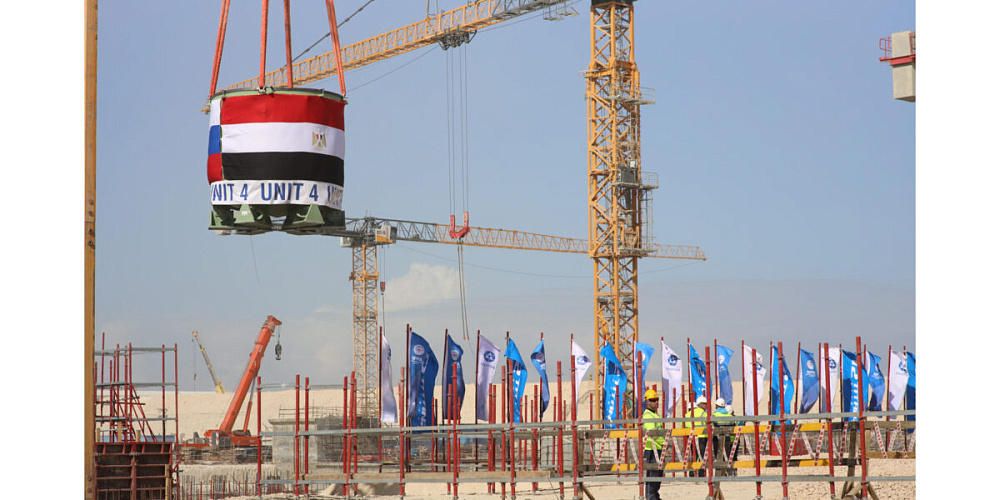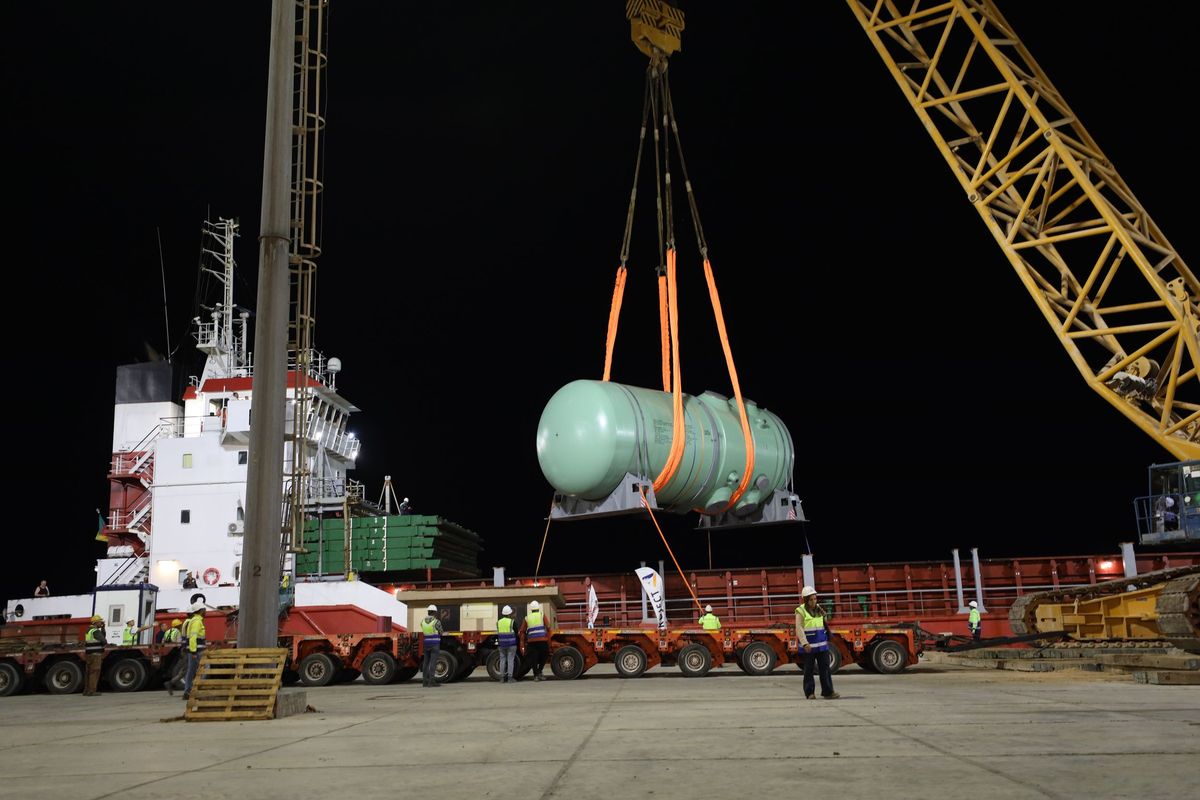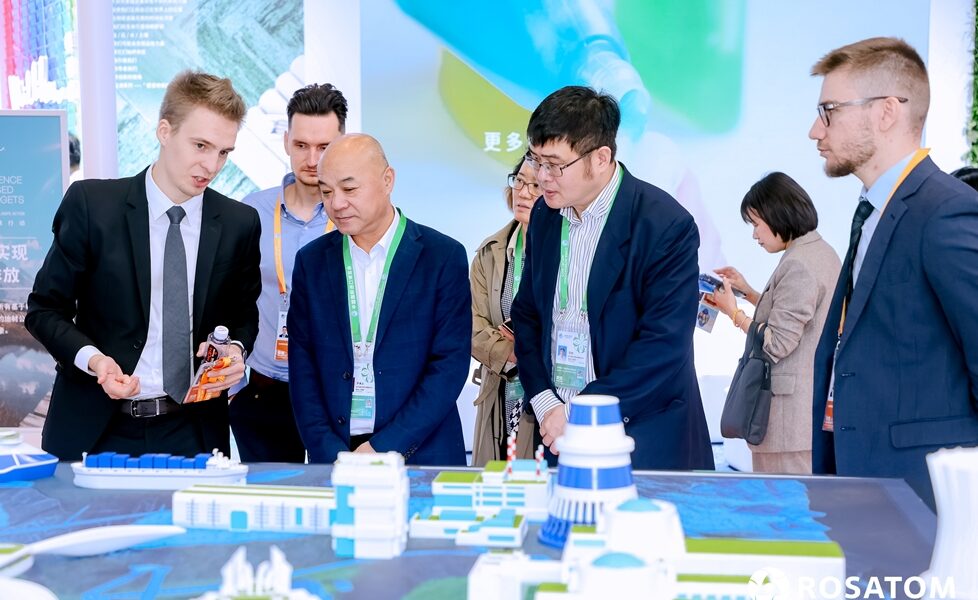During the state visit of the President of Russia to Uzbekistan, a protocol was signed between the two countries in the presence of the heads of state of Russia and Uzbekistan. The protocol amended the Intergovernmental Agreement on cooperation in the construction of a nuclear power plant in Uzbekistan, expanding the cooperation to include the construction of a small nuclear power plant based on a Russian project in Uzbekistan.
On the sidelines of the event, the Joint Stock Company Atomstroyexport (the Engineering Division of the State Corporation Rosatom) and the State Unitary Enterprise “Directorate for the Construction of Nuclear Power Plants” under Uzatom, the Agency for Atomic Energy of the Cabinet of Ministers of the Republic of Uzbekistan signed a contract for the construction of a small nuclear power plant (SNPP) in Uzbekistan.
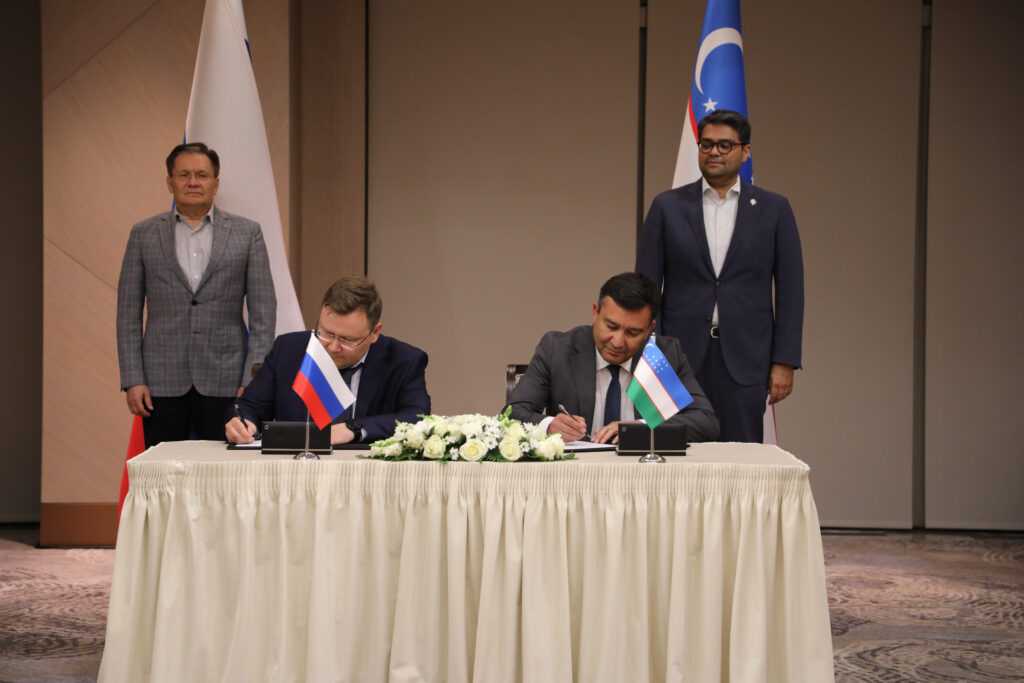
The project involves the construction of a small nuclear power plant in the Jizzakh region of Uzbekistan based on a Russian design, with a total capacity of 330 MW (six reactors with a capacity of 55 MW each). Rosatom will be the general contractor for the construction of the plant, and local companies will also be involved in the construction process. “Rosatom has confirmed its undisputed global leadership in nuclear energy by signing the first-ever export contract for the construction of a small nuclear power plant. This is not just a preliminary agreement; we are starting construction this summer,” commented the Director General of Rosatom Alexey Likhachev on the signing.
“According to forecasts, the demand for energy resources in Uzbekistan will almost double by 2050. It is evident that for the stable operation of the energy system and economic development, our country must ensure a base-load power source in addition to renewable energy sources. We are witnessing a global increase in interest in new nuclear projects, both in large-capacity power plants and small modular reactors. We believe that expanding cooperation with Rosatom will strengthen our energy sector with advanced nuclear energy technologies,” said the Director of Uzatom Azim Akhmedkhadjaev.
The chosen site has already been surveyed and confirmed for suitability and safety, which will significantly shorten the project implementation timeline. Construction work at the site will begin this summer.
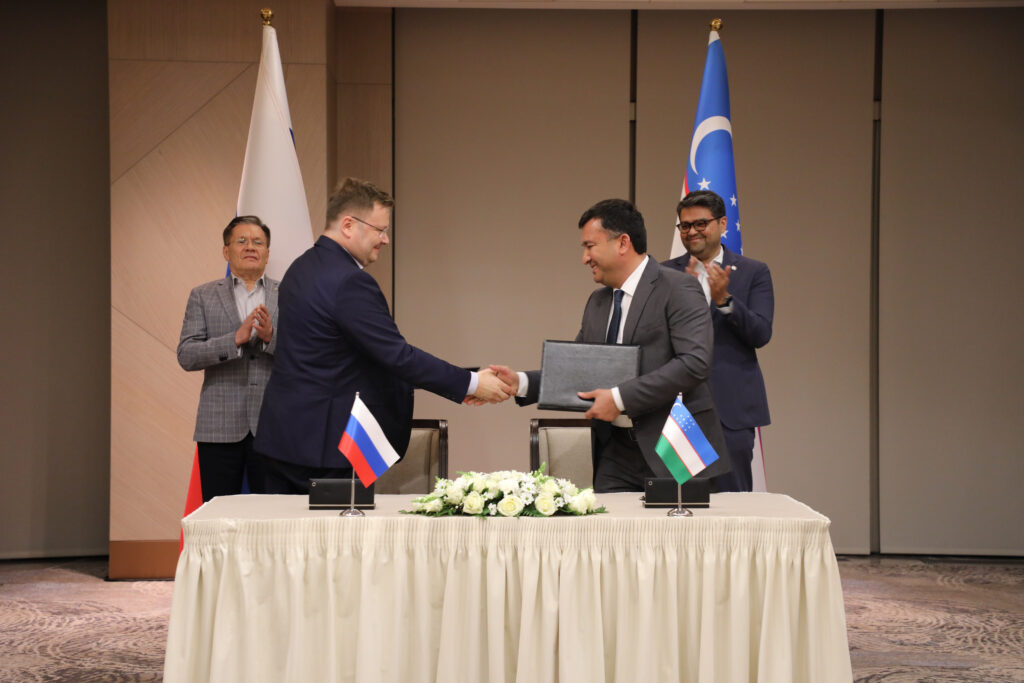
Reference
The SNPP project in the Jizzakh region will be based on the latest Russian technology – the RITM-200N reactor, which is an adaptation of innovative marine technology for land-based deployment. Its thermal power capacity is 190 MW, its electrical power is 55 MW, and its service life is up to 60 years. RITM-200 series reactors, on which the RITM-200N reactor is based, have been tested in harsh Arctic conditions on the modern Russian icebreakers. Since 2012, ten RITM-200 reactors have been manufactured for the universal nuclear icebreakers Arktika, Sibir, Ural, Yakutia, and Chukotka. The first three are already in operation successfully accompanying vessels in the western Arctic region.
The small nuclear power plant based on the RITM-200N reactor is already under construction in the village of Ust-Kuyga, Yakutia. The first power unit is expected to be launched in 2027, with commissioning in 2028. The facility will provide electricity to industrial enterprises, including the development of the Kyuchus, Deputatskoye, and Tirekhtyakh deposits.
The small nuclear power plant based on the RITM-200N reactor features a fully integrated design, allowing for high economic efficiency and the highest level of safety, achieved through multi-level systems and containment barriers. The combination of active (requiring power sources) and passive (operating without power sources) safety systems ensures maximum safety. These systems prevent the possibility of an accident, and the multiple levels of barriers in the plant’s design prevent the release of radioactive substances into the environment.
Small nuclear power plants offer several advantages, primarily shorter construction times compared to large-capacity nuclear power plants due to their compactness, and the potential to increase capacity according to the country’s needs. Currently, SNPPs are a clear trend in the future development of global nuclear energy. According to IAEA, there are about 50 small modular reactor projects and concepts worldwide at various stages of development. However, only Russia has practical experience in constructing small nuclear power plants: Russia was the first in the world to commission Akademik Lomonosov, a floating nuclear power plant , which supplies energy to consumers in the remote city of Pevek in the Chukotka Autonomous Okrug. Rosatom is the only company on the market offering SNPPs with an integrated layout.
Russia is actively developing scientific cooperation with all interested countries and continues to implement major international projects. Rosatom and its divisions are actively involved in this work.


